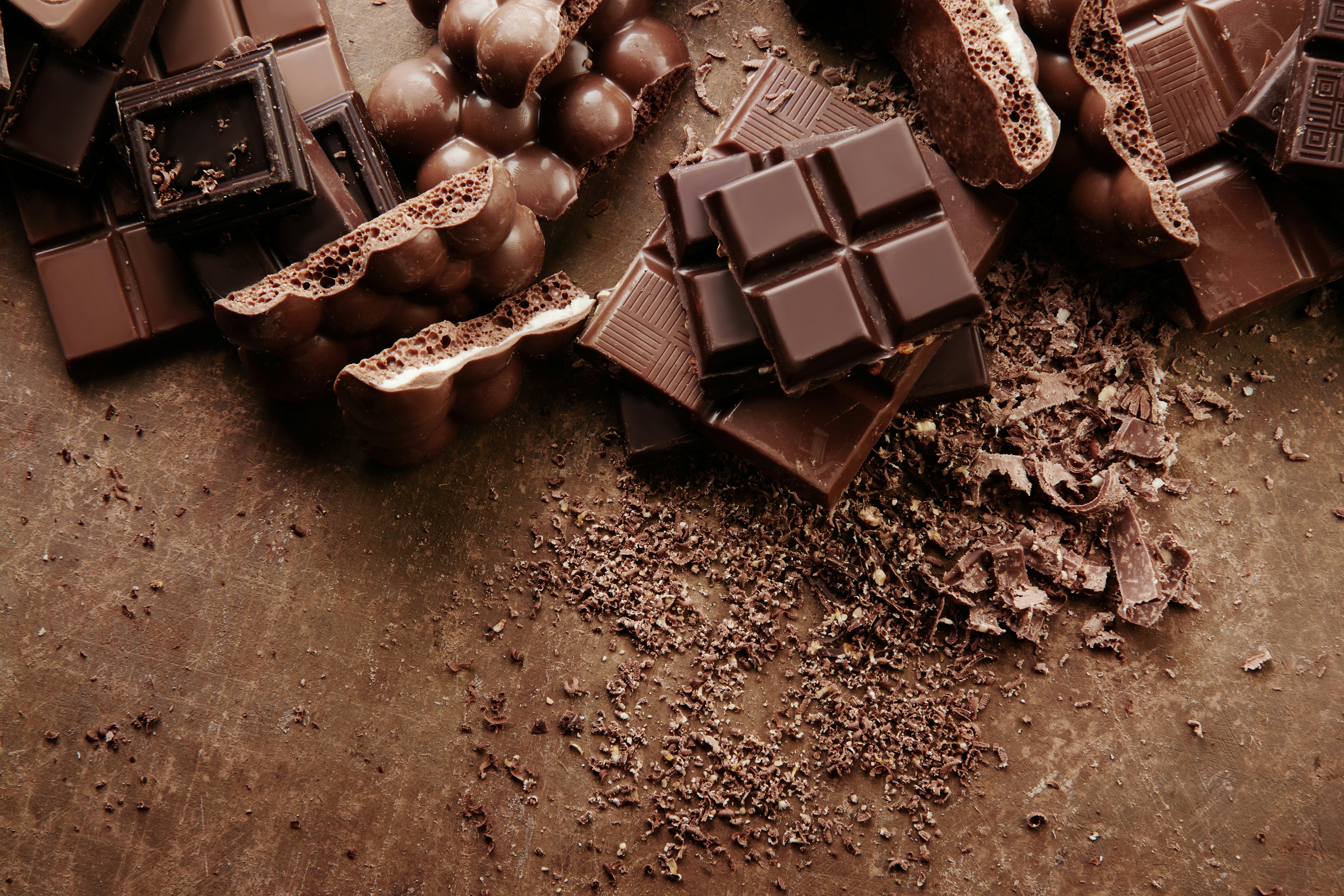
The routine question — “Is dark chocolate healthy?” — pricks up the ears of chocolate lovers everywhere. Score: another excuse to eat the savory treat. But just like for red wine and coffee, is dark chocolate actually good for you?
Bad news: It’s not. But don’t fret just yet.
As is usually the case, it’s not that chocolate itself is ever healthy, not in the same way that vegetables are. Rather, a compound within cacao could have certain health benefits. That compound is cocoa flavanol, which has been a point of interest for years.
Is dark chocolate healthy?
“It really should not be perceived as a health food,” says Dr. JoAnn Manson, a physician at Brigham and Women’s Hospital and the trial’s principal investigator.
A study published earlier this month in The American Journal of Clinical Nutrition examined some findings of an ongoing clinical trial tracking 21,442 people in the U.S. who took 500 milligrams of cocoa flavanols in the form of two capsules per day for over five years.
This clinical trial, called COcoa Supplement and Multivitamin Outcomes Study (COSMOS), doesn’t even look at chocolate itself as a way to reduce cardiovascular health risks. It looks at the use of supplementary cocoa flavanol capsules that contain 500 milligrams of the compound. While there’s some indication that these supplements may have a benefit, dark chocolate cannot healthfully be that source.
You can’t just eat that amount of cocoa flavanols from chocolate. According to Manson, to gain health benefits you would have to eat 4,000 calories of milk chocolate and about 600 calories of high-cacao dark chocolate per day. Some people might be thrilled that eating between 600 and 1,000 calories of chocolate will have the effect of a supplement, but at that point, the tolls of excess sugar and fat vastly outweigh the benefits.
On top of this, Manson points out that chocolate isn’t a reliable “delivery vehicle” of cocoa flavanols. “One of the reasons you don’t see on chocolate bars any mention of the milligrams of cocoa flavanols is because the processing of the chocolate varies,” she tells Inverse. “With some forms of processing, all or a very large portion of cocoa flavanols are destroyed.” There’s no certainty of high flavanol content even in dark chocolate with lots of cacao.
What even is cocoa flavanol?
Flavanol is a particular kind of compound within a larger family called flavonoids. They’re naturally occurring in plant-based foods including grapes, berries, and tea.
Previous trials have shown that cocoa flavanols are associated with lower blood pressure, improved blood vessel dilation, and anti-inflammatory properties. While prior clinical trials had suggested they might be related to a lower risk of cardiovascular events, there weren’t any large trials that randomized the use of cocoa flavanol supplements with other methods. Manson says COSMOS is the first large-scale, randomized clinical trial that looks at cocoa flavanols in reducing cardiovascular events including heart attacks, stroke, cardiovascular death, carotid artery disease, and others.
In the study, there were four different randomized groups. Patients took:
- Cocoa extract and a multivitamin
- Cocoa extract placebo and a multivitamin
- Cocoa extract and a multivitamin placebo
- Cocoa extract placebo and multivitamin placebo
There was a 10 percent reduction of total cardiovascular events in groups that took cocoa flavanols, which isn’t statistically significant, meaning that it’s not a big enough reduction to consider cocoa flavanols a meaningful way to prevent cardiovascular events in general.
However, there was a 27 percent reduction in cardiovascular death among those who took cocoa flavanol supplements. This finding merits more investigation into cocoa flavanols as ways to reduce cardiovascular risk.
Are flavanols healthy?
Any hopeful chocolate lover may fall prey to the false, alluring logic that “flavanols are healthy; dark chocolate contains flavanols; therefore chocolate is healthy.” While that’s unfortunately not the case, flavanols and flavanoids are indeed healthy and ought to be included in a balanced diet.
“Our conclusion is to strive for a heart-healthy balance that is high in many sources of flavanols such as grapes and berries and other fruits,” Manson tells Inverse.
She isn’t ruthless, however. “Chocolate is a wonderful treat. It’s perfectly fine to indulge in chocolate treats occasionally.” If you feel like indulging in some dark chocolate while getting in your flavanols and flavanoids, enjoy some dark chocolate-covered strawberries.
CHECK, PLEASE is an Inverse series that uses biology, chemistry, and physics to debunk the biggest food myths and assumptions.
Now read this: Is that soapy cilantro taste genetic? A food scientist indulges in the mystery







